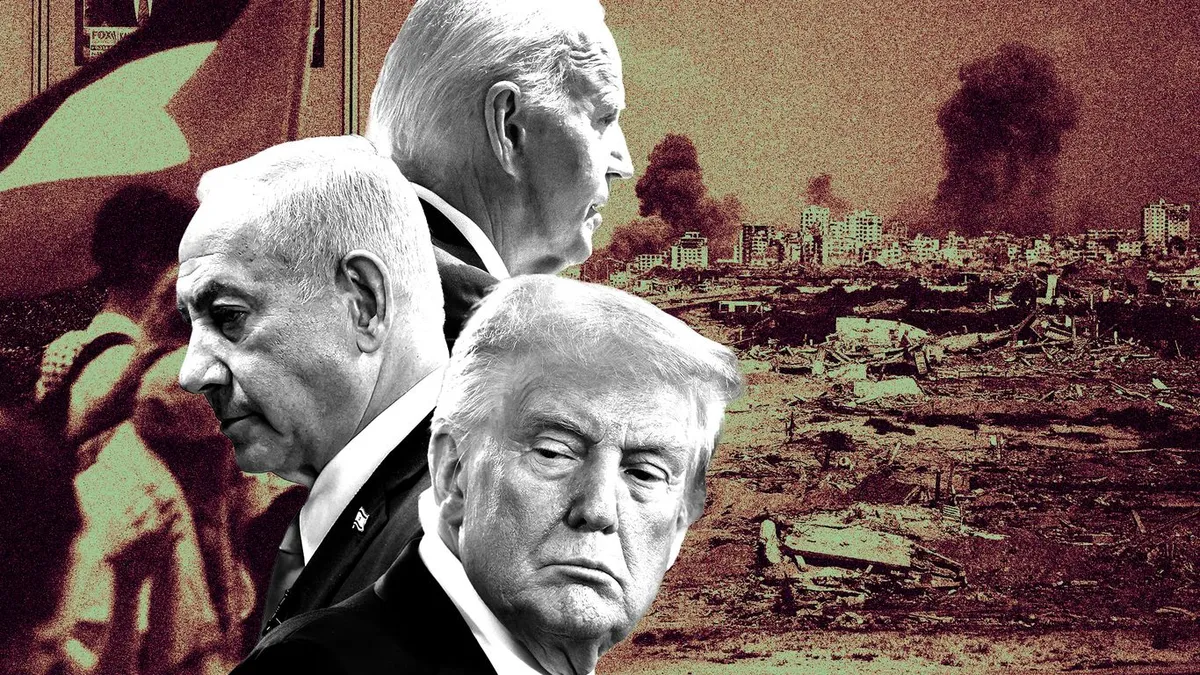
Two years have passed since the devastating October 7 attacks by Hamas, and the conflict in Gaza is approaching a critical juncture. The repercussions of this war will undoubtedly reshape the region for generations to come. Understanding the significance of this conflict is vital, as it began with the most horrific massacre of Jews since the Holocaust, and has continued to witness the most severe killing and displacement of Palestinians since the Nakba of 1948.
The ongoing war has not only caused immense human suffering but has also led to substantial geopolitical shifts. Even if former President Trump's peace initiative manages to find success, the humanitarian crisis and the resulting changes in international relations will echo through time. Israel has dealt significant blows to its adversaries since the onset of the conflict on October 7, yet its global reputation has suffered tremendously.
Support for Palestinian rights and statehood has surged, with over a dozen additional countries officially recognizing Palestine. However, the situation for Palestinians in Gaza is dire—they face displacement and hunger, while those in the occupied West Bank are experiencing increased repression. In the U.S., the conflict has created a rift within the Democratic base as the 2024 elections approach, leading to campus protests that the Trump administration is using to press universities.
The Israeli government reports that nearly 2,000 Israelis have lost their lives due to the ongoing war. In stark contrast, the Hamas-controlled health ministry claims that over 67,000 Palestinians have died in Gaza alone. Additionally, several thousand more casualties have occurred across the West Bank, Lebanon, Iran, Syria, and Yemen. Since October 7, Israel has engaged in military actions in eight different countries, with a total of 255 hostages taken by Hamas; 148 of these hostages have returned alive, while the bodies of 59 have been recovered, leaving 48 still unaccounted for, of which 20 are believed to be alive.
The conflict in Gaza quickly escalated into a regional war that destabilized the entire Middle East. In Iran, Israel's bombing campaign, supported by the U.S., severely disrupted the nation’s nuclear program and weakened its government. Lebanon saw the assassination of Hezbollah’s leader and the elimination of top commanders, which significantly reduced the group’s political influence. This shift allowed a U.S.-friendly president to ascend to power following a two-year political deadlock.
In Syria, the Assad regime became vulnerable due to the diminishing power of the pro-Iran axis, resulting in a rebellion that saw the regime's 50-year rule come to an end. The new government is now engaging in direct talks with Israel for the first time in 25 years. Meanwhile, in Iraq, pro-Iranian Shia militias have effectively stood down in response to military threats from Israel and political pressure from the U.S. Conversely, the Houthis in Yemen have withstood a prolonged U.S. air campaign, establishing themselves as a significant threat to Israel.
In Qatar, a failed Israeli air strike against Hamas leaders ignited a united front among Gulf states, calling for an end to the conflict and expressing outrage at Israel. It is from this turmoil that Trump’s peace plan emerged.
Israel's global support has waned significantly. Trump, in a recent interview, expressed his intention to restore that support, stating, "Now I am gonna get all that support back." He remains one of the few world leaders standing alongside Israeli Prime Minister Benjamin Netanyahu, who has faced criticism for the extent of his military campaign. Polls in Israel have indicated that a clear majority of the populace desires an end to the war and the release of hostages, even if it means that Hamas survives in some form. Furthermore, many Israelis believe Netanyahu should resign due to his refusal to address pre-war security failures or allow an independent inquiry.
The humanitarian situation in Gaza is catastrophic. The region has become largely uninhabitable, with the entire population of approximately two million people displaced. Almost all critical infrastructure has been obliterated, and the Israeli military has systematically flattened the majority of homes. Although a recent influx of aid has halted the immediate threat of famine, the humanitarian crisis remains one of the worst worldwide.
While Hamas has not been entirely eradicated, it has suffered significant military defeats, losing a large portion of its experienced fighters and heavy weaponry. Consequently, the group’s capacity to launch another attack like October 7 has been eliminated. Furthermore, Hamas’ popularity and legitimacy within Gaza appear to have diminished, and the organization is now isolated within the Arab world. For the first time, it seems willing to relinquish some power in Gaza and even consider partial disarmament.
One of the motivations behind Hamas leader Yahya Sinwar's initiation of the October 7 attacks was to disrupt the normalization process between Israel and Arab nations, particularly a potential peace agreement with Saudi Arabia. In response, Saudi Arabia has adopted a more pronounced pro-Palestinian stance, and no Arab leaders have publicly associated with Netanyahu since the conflict began. On the other hand, Trump's peace proposal, which emphasizes a credible path to Palestinian statehood—a critical condition for Saudi normalization—has introduced eight Muslim countries into the peace dialogue.
Despite this, global sentiments toward Israel, Israelis, and Jews are at an unprecedented high of hostility. Trump has voiced concerns over the glorification of the October 7 attacks and the denial of their occurrence. Both Israeli and Palestinian societies bear deep trauma from this prolonged conflict, with significant portions of each becoming further radicalized. The prospect for lasting peace or any immediate reconciliation seems bleak from both sides.
As the situation unfolds, all eyes are on Egypt, where indirect peace talks between Israel and Hamas are set to take place this week. For any significant rebuilding efforts to commence, the war must come to a definitive end. The future of the region hinges on these negotiations, as the world watches closely for any signs of resolution and hope.